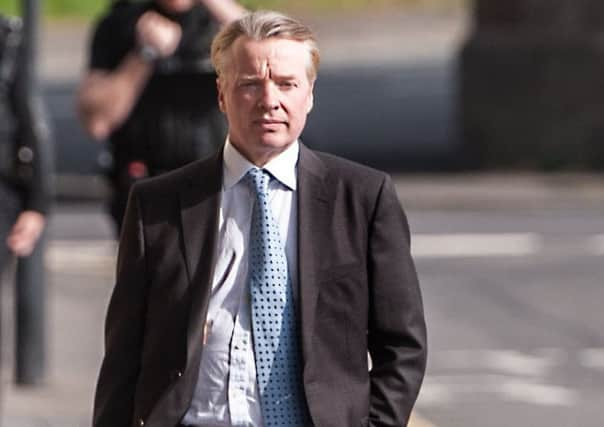Craig Whyte trial: Rangers '˜had used Ticketus cash before'


Chartered accountant Michael McGill, a key adviser to former chairman Sir David Murray, gave evidence at Whyte’s trial at the High Court in Glasgow yesterday.
Prosecutors claim Whyte helped fund his takeover in May 2011 by getting a loan from Ticketus against three years of future season ticket sales.
Advertisement
Hide AdAdvertisement
Hide AdMr McGill said Whyte had stated funding was coming from his own “personal resources”.
But the club had used the firm to obtain up to £6 million, Mr McGill said. In 2011 Rangers had about 40,000 season ticket holders who would pay money into the club, which could be used to obtain cash from Ticketus “up front” if the club needed it.
He said this had not been shown in the club’s accounts but there had been “no desire hide” it. However he admitted that using Ticketus might have been a “sensitive issue” for some supporters, after Leeds United effectively sold off season tickets before running into serious financial problems.
Mr McGill was asked what his reaction would have been if he had known Ticketus cash was to help fund the takeover.
He replied: “Using the season ticket money in that manner was completely unpalatable to us.”
He added it made “no sense” to effectively replace one bank’s debt with another.
He said Sir David did not want to “simply walk away” from Rangers and that it was “crucial” the club was being left in good hands.
Earlier the court heard how a potential bid for Sir David’s controlling stake in the club by a Lithuanian bank was rejected amid fears of its connection to organised crime.
Advertisement
Hide AdAdvertisement
Hide AdAn offer funded by a Lithuanian bank became known. The court heard the bank seemed to be “an institution” that had the “wherewithal” to complete a sale.
But Mr McGill said the Murray Group became “extremely uncomfortable” dealing with the Lithuanian bank.
The witness said there had been accusations it was involved in “organised crime and money laundering”.
There were also added concerns about any “furore” given publicity surrounding the Lithuanian owners of another Scottish club at that time.
There was another approach by two individuals said to have links to the brother of an un-named English football boss. They produced a letter from a Belgian bank stating they had 50m euros to invest
But one of the pair was found to have the same name as someone banned from being a company director in the UK.
The letter was also discovered to be “fraudulent”.
The trial, before Judge Lady Stacey, continues.